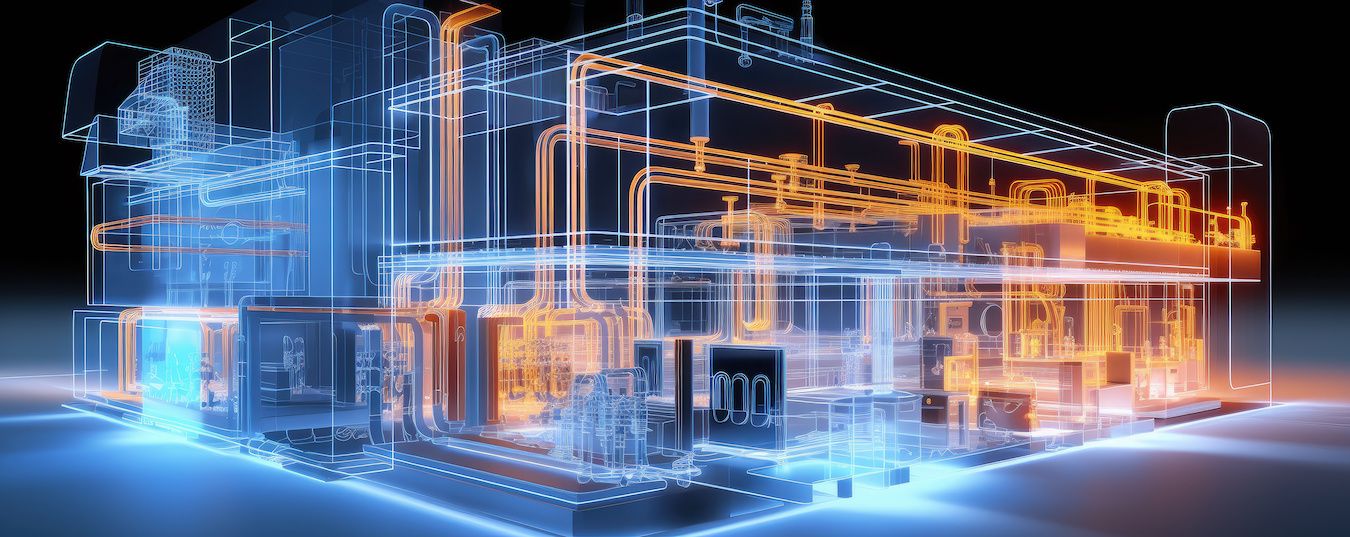MODERN VS. CONVENTIONAL ENERGY MANAGEMENT SYSTEMS

IMPROVING HVAC OPERATIONS FOR GREENER BUILDINGS
With the growing pursuit of a greener and more sustainable future, the role of technology has become increasingly vital for building owners and managers. Energy management systems, specifically those powered by artificial intelligence (AI), are at the forefront of this green revolution. These systems are transforming the way owners control and optimize building operations, particularly in the context of HVAC (heating, ventilation, and air conditioning) systems.
HVAC systems account for nearly half of the consumed energy in buildings, which means improving their efficiency directly translates to energy and cost savings. The question for property managers now becomes, “Can I achieve these savings more successfully with modern or conventional methods?” On one hand, conventional approaches bring tried-and-true methods. However, the innovative technology behind modern energy management systems are increasingly taking the lead, providing the following advantages.
PRECISION AND REAL-TIME ADAPTABILITY
Conventional HVAC systems often rely on static schedules and manual adjustments, which can be inefficient and fail to account for dynamic factors like occupancy, weather conditions, and equipment performance. Advanced AI-driven systems continuously collect and analyze data from various sensors and sources to make instant adjustments, ensuring optimal comfort while minimizing energy consumption. This real-time adaptability is crucial for reducing energy waste and achieving sustainability goals.
PREDICTIVE MAINTENANCE
Traditional maintenance practices are often based on fixed schedules or reactive responses to equipment failures. This can lead to unnecessary downtime, energy waste, and higher maintenance costs. With enhanced maintenance practices, these systems use predictive analytics to detect equipment issues before they become major problems. By identifying and addressing maintenance needs proactively, it not only extends the lifespan of HVAC systems but also reduces energy expenditure.
DATA-DRIVEN DECISION MAKING
Modern systems leverage vast amounts of data to make informed decisions. They collect data from numerous sensors, weather forecasts, and building occupancy to enhance HVAC performance. Conventional methods rely on manual data analysis, which is time-consuming and prone to errors. With innovative energy management practices, commercial property owners can uncover hidden patterns and trends in data, allowing for more precise and efficient operations.
CONTINUOUS LEARNING AND OPTIMIZATION
While traditional systems remain static once installed, AI-driven methods continuously learn and adapt. They improve their algorithms over time, becoming more efficient with improving HVAC performance. By analyzing historical data and user feedback, these systems can make smarter decisions, further reducing the energy usage and carbon footprint of buildings. This adaptive nature ensures that commercial properties remain energy efficient and sustainable in the long run.
THE MODERN WAY
Although conventional methods have effectively supported the commercial real estate industry for an extended period, modern energy management systems offer the potential to expand the horizons of efficiency and sustainability.
Whether it’s a small office or a large industrial facility, AI-powered energy management approaches like iBOS® can be customized and expanded for the needs of each commercial or residential building to achieve greener outcomes. As society continues to embrace these technologies, property owners and managers can look forward to a future where buildings not only consume less energy, but also contribute to a healthier planet.